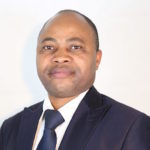The Slow but Sure may not win this race
I read this article Point:Hypotheses first,by Robert Weinberg,under the caption "Has genomics done a lot to fight cancer?" In Nature published online 31 March 2010.(From Twitter
RT @NatureNews: Has genomics done a lot to fight cancer? Robert Weinberg argues no http://bit.ly/9leNsW ; Todd Golub argues yes http://b … 1:15 PM Apr 4th via web).
Robert A. Weinberg is at the Whitehead Institute for Biomedical Research, and in the Department of Biology, Massachusetts Institute of Technology, Cambridge, Massachusetts 02142, USA.
Email: weinberg@wi.mit.edu
see also this website:
http://www.nature.com/news/2010/100412/full/news.2010.178.html?s=news_rss
I have this feeling that Globalization has given freedom of choice to the patient to choose any specialist he likes across the globe;from whom he seeks his therapy.Thus any established mode of practice recognised at the global level will have marked repercussions on any one concerned with it;if at all it undergoes any change,this will be felt more keenly in the area of online consultations.Thus it must be borne in mind before making any new policies, how will they affect a long standing mode of practice.
I would like you to read the following paragraphs(in inverted commas) from Robert Weinberg’ s article and see if you agree with the impression I got from the same.
"Abstract"
"There is little to show for all the time and money invested in genomic studies of cancer, says Robert Weinberg — and the approach is undermining tried-and-tested ways of doing, and of building, science. This Opinion piece is part of a linked pair; see also Counterpoint: Data First by Todd Golub."
From Robert Weinberg’ s Article. The Conceptual Tools
"Now the dominant position of hypothesis-driven research is under threat. Many feel that traditional conceptual tools cannot map the enormous complexity that allows single cells and complex organisms to thrive, and that recent technological innovations have created a viable alternative. My students can gather certain types of experimental data 1,000 and even 10,000 times faster than I could 40 years ago".
Anachronisms
"In cancer research, the new technologies promise to change the landscape of diagnosis, therapy and insights into disease pathogenesis. So have the old ways of doing business — of testing hypotheses — become anachronisms? I think not."
"
"The era of the new biology — genomics, proteomics, metabolomics — began with the sequencing of the human genome a bit more than a decade ago. Its successes are indisputable: tens of thousands of research programmes, many focused on identifying and characterizing specific genes, have benefited enormously from the creation and study of this database."
Is it worthwhile?
"Is it worth extinguishing 30 small-scale projects for an attack at the systems-wide level?"
What are hypotheses-driven projects?
"Large-scale efforts such as the Human Genome Project are portrayed as the future, and as central to the discipline of systems biology that has since emerged. Increasing proportions of national research budgets are being diverted to them. But is it worth extinguishing 20 or 30 small-scale, hypothesis-driven projects to make room for an attack at the systems-wide level?"
New ways still on an untested path.
"From a cancer researcher’s perspective, the successes of hypothesis-driven science are clear and undeniable. They stretch back over half a century and continue week after week, month after month, to yield new conceptual insights. By contrast, the new ways of doing biology are so untested that their long-term benefits are still hard to project. Nonetheless, it’s useful to make comparisons, if only because economic necessities force them to be made."
Genome is too gigantic for modesty
"Sequencing of entire tumour genomes (or their coding exons) has a more mixed record. These projects consume an enormous amount of resources and researchers’ energy.
The dividends to date have been modest: the discovery of several new oncogenes and tumour suppressor genes involved in tumour formation (for example, BRAF, IDH1/2 and translocations in prostate carcinomas), and a general measure of the degree of genetic instability of various tumour-cell genomes."
The formidable Cost
"These massive data-generating projects have yet to yield a clear consensus about how many somatic mutations are required to create a human tumour, and have given us few major breakthroughs in our understanding of how individual tumours develop. The cost of each conceptual insight has been very high indeed — although this is likely to change as technology costs tumble. Meanwhile, countless smaller experimental research programmes — proven sources, year-after-year, of conceptual innovation — have struggled to survive."
"High stakes"
"Arguably the most ambitious large-scale venture involves assembling the many interacting signalling components within individual cells into wiring diagrams. ‘hairballs’. Although aesthetically pleasing, they have yielded few conceptual insights into how and why cells and tissues behave the way they do. Some feel that a thorough understanding of individual signal-processing components is an essential prerequisite to predicting the behaviour of entire signalling circuits — a notion often dismissed as old-style reductionism."
Bright youth following the tunes played on a charming pipe!
"The stakes here are high. The repercussions of major agencies shifting their funding allocations will be felt for a generation. Running laboratories focused on small-scale, hypothesis-driven research has become unattractive for many young people because of the enormous difficulty of procuring enough money to launch and expand such a research programme. The long-term effects will be an increasing inability of many biological disciplines to attract the brightest young people — and they are, after all, the engines of scientific progress. Without them, we are lost."
In Robert Weinberg’s article I find several points I would agree to. The chief bugg bear is that since I belong to a certain group (pathologists,specialists, general practitioners and the patients) which caters to and in the case of patients who avail of the catering; all do so depending on an established procedure and so do I..In many cases such a procedure becomes central to an institution’ s tradition and in some cases influences socio/ cultural aspects of the interaction among members of this group.Like slide shows, awareness drive,improving patients’ lifestyle, and sessions to explain complexities of therapy.This picture all but stands uprooted if for any reason this procedure is not in vogue anymore.
People want to sway commerce and politics in their favor.So they can occupy the top global position on the global pole and from there exert maximum influence on the rest of the world.Once Governments are in favor of a certain project then time, space and money all pour in its direction, all people follow suit for the new and the promising!Of course due respect is shown to the traditional with a will- be- with- you- in a minute attitude.That minute never comes, eons pass, the older works are left to fend for themselves and most of them will dwindle and dismantle.
Robert talks about the worth of this switch. I agree with him that genomics is a humungous database, a thirst quenching universal pool for the research worker, academicians, a super tell- me- why for students, it answers the doctors’ many questions, it is of benefit for the clinical investigators.To me it seems like an ocean of facts on which billions of tiny quest boats sail.There is a constant movement of messages.A staggering quantity of question material is being exchanged.It focally, all gathers to, well just a drop in the ocean!! Yes, still a long way to go.Yes, funds should be gathered for genomics research methods but not at the expense of tried and tested methods.It is not as simple as getting a better looking and functioning new version of say, a samsung( purple compound fancy Berry) and tossing the older(v.v.v.v slightly older version of a still juicy berry) into the vastness of the toxic waste! Lest the new band loses itself in the quagmire of Genome studies with its information exhaustion;; making the scholars feel puny and helpless and having cut themselves off from the previous version, there would be no tried and tested methods left to turn back to!
"Better or just bigger?













